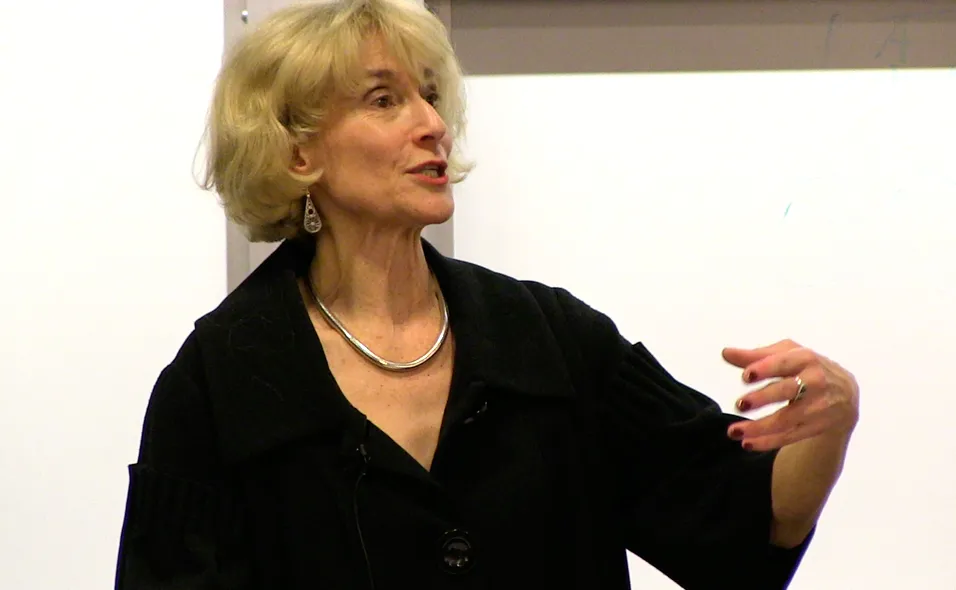Martha Nussbaum on the Ineffectiveness of Anger

Anger is a deeply human emotion, but ultimately problematic for a criminal justice system that hopes to create a more just and peaceful world, said Martha Nussbaum, Ernst Freund Distinguished Service Professor of Law and Ethics, in the first Chicago’s Best Ideas lecture of winter quarter, on January 14. Her speech was titled: "What is Anger, and Why Should We Care?"
“Anger, with all its ugliness, is still a very popular emotion,” she said. “Many people think it’s impossible to care for justice without anger at injustice.” But Nussbaum, in a new project, says that idea is “fatally flawed,” along with notions of the need for payback and revenge as key components of a legal system.
First off, she said, in almost all cases the idea of retributive justice is nonsensical. “The idea of payback just doesn’t make sense,” she said. “Whatever the wrong was that was done – let’s say it’s a murder or rape – inflicting pain on the wrongdoer doesn’t actually help restore the thing that was lost.”
One unique instance when anger makes sense, Nussbaum said, is when the victim sees the wrong entirely in terms of relative status: she does not focus on the murder or rape, but only on the way she is downgraded in status by the wrong. In that case, humiliating the perpetrator could be effective, by lifting the victim’s own relative status. But our justice system is about much more than relative status, though many people care about it, even obsessively.
A rational person (or movement or government) will realize that anger is normatively problematic in these two ways, and will undergo a transition to constructive forward-thinking ideas of social welfare, Nussbaum said. The rational person will deal with the wrongful act in ways that make sense in terms of social welfare as a whole.
In terms of criminal justice, this means the “pile-on-the-pain strategy” does not work, she added. Instead of focusing on painful punishment, society should look for ways to deal with the social problem of crime itself. That may include punishing the wrongdoer, but it also must consider many other measures, such as improving education or social welfare – as philosophers from Plato to Utilitarianism’s founder Jeremy Bentham have long insisted.
Nussbaum illustrated her point with examples both ancient, from Greek drama, and modern, referencing the lives and work of Mahatma Gandhi, Nelson Mandela, and Martin Luther King, Jr.
In particular, King’s famous “I Have a Dream” speech shows the promise of transformed anger for revolutionary or transitional justice, Nussbaum said. At first, King addresses the obvious anger that results from blacks being denied their civil rights, and the failing of America’s promise. But he refuses to demonize white Americans or call for vengeance. Instead, he envisions a world where all people are free, together. He takes anger and shapes it into hope and a call for constructive social action.
And he asks his followers to separate the deed from the doer, Nussbaum added. Deeds can be denounced, but people deserve sympathy and respect. It’s more than a call for peace and love, Nussbaum said; it’s a way to get closer to justice.
“A responsible leader has to be a pragmatist, and anger is incompatible with forward-looking pragmatism,” she said. “It just gets in the way.”
This work is part of Nussbaum’s preparation for delivering the John Locke Lectures in Philosophy at the University of Oxford in May and June. She will give six one-hour lectures; the work will be published in an upcoming book from Oxford University Press (New York). The lecture series, which began in 1950, has hosted “most of the greatest philosophers of the last half century,” according to the Oxford philosophy department.
